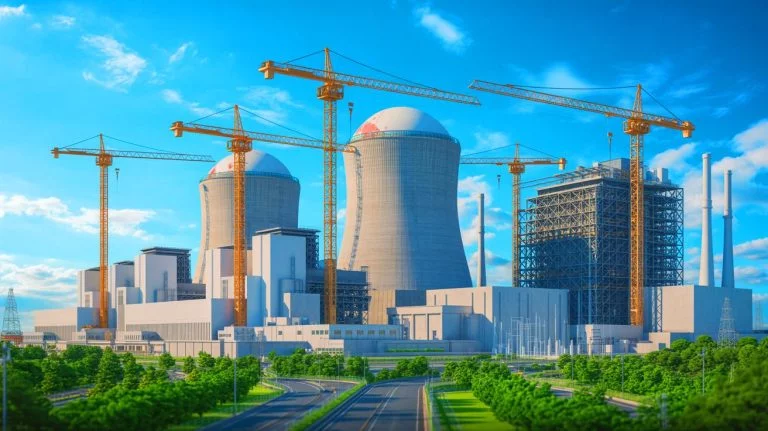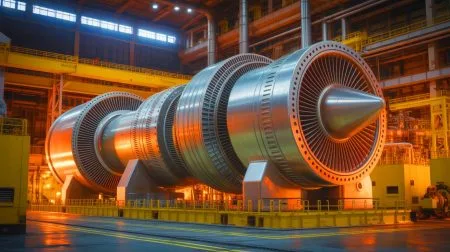| IN A NUTSHELL |
|
In the wake of the 2011 Fukushima disaster, Japan’s nuclear energy policies faced a significant freeze. However, in a surprising turn of events, Kansai Electric is considering a new nuclear project at the Mihama Nuclear Power Plant. This potential development could mark the end of a 13-year hiatus in nuclear reactor construction in Japan. As the world grapples with energy challenges, Japan’s reconsideration of nuclear power underscores a shift in priorities, driven largely by the pressing need for stable and carbon-free electricity solutions.
Nuclear Returns with Purpose
Japan’s renewed interest in nuclear energy symbolizes a strategic shift towards sustainable energy solutions. As the demand for electricity intensifies, propelled by power-hungry technologies like artificial intelligence and data centers, the nation is compelled to explore diverse energy sources. Nuclear power, despite its contentious history, emerges as a viable option due to Japan’s limited domestic energy resources and land constraints.
Kansai Electric’s president, Nozomu Mori, highlights the necessity of nuclear energy in ensuring energy security for Japan. The company plans to assess the feasibility of replacing the aging No. 1 reactor at the Mihama plant, although a detailed construction timeline remains undetermined. This move, however, is Japan’s clearest indication yet that it is ready to re-embrace nuclear energy, a sentiment echoed by the market’s swift response in the form of rising share prices for Kansai Electric and other related companies.
Mitsubishi Heavy Industries’ SRZ-1200 reactor model is a leading contender for the Mihama project, signaling potential advancements in Japan’s nuclear capabilities. The decision, however, hinges on the outcomes of comprehensive site surveys. For Japan, which currently operates only a fraction of its 33 nuclear reactors, overcoming regulatory and societal barriers remains a challenge.
Nuclear Future Takes Shape
As Japan navigates its energy future, the notion of nuclear power is gaining traction, particularly among younger demographics and industrial leaders. The global landscape sees a quiet resurgence of nuclear endeavors, with giants like Microsoft and Amazon investing in nuclear projects in the U.S. This trend reflects a broader acceptance of nuclear energy as a sustainable and reliable solution.
Japan, having learned from past experiences, is poised to re-enter the nuclear sphere with renewed vigor. The government’s position, although cautious, acknowledges the necessity of carbon-free electricity in meeting future energy demands. Trade Minister Yoji Muto emphasizes the importance of securing more carbon-free energy, which aligns with Kansai Electric’s plans to potentially spearhead Japan’s nuclear renaissance.
The Mihama project stands as a potential turning point for Japan’s energy policy, possibly paving the way for further developments in the nuclear sector. As energy security becomes crucial in the AI-driven era, Japan’s nuclear ambitions could redefine its role in the global energy conversation.
Public Opinion and Market Dynamics
Public sentiment towards nuclear energy in Japan has undergone a transformation. While Fukushima instilled deep-seated apprehensions, rising energy costs and the imperative to meet carbon targets have softened resistance. Public opinion is increasingly favoring nuclear power, particularly as other energy sources struggle to meet demands.
Interestingly, the market dynamics reflect this shift. Following Kansai Electric’s announcement, shares of related companies experienced notable gains. This market enthusiasm underscores investor confidence in nuclear energy’s potential resurgence in Japan. The anticipated deployment of Mitsubishi’s SRZ-1200 model further bolsters this outlook.
Regulatory hurdles and safety concerns, however, remain pertinent challenges. Any progression in the nuclear sector will require stringent compliance with safety standards, alongside addressing local community concerns. The balance between advancing nuclear capabilities and ensuring public safety will be crucial for Japan’s energy future.
Japan’s Path Forward
As Japan contemplates its energy future, the decision to potentially re-engage with nuclear power is emblematic of broader strategic considerations. With fossil fuels becoming increasingly untenable and alternative energy sources facing capacity limits, nuclear energy presents a pragmatic option.
The Mihama project, if realized, could serve as a catalyst for Japan’s nuclear resurgence, offering a blueprint for future endeavors. The government’s supportive stance, coupled with market optimism, sets the stage for potential advancements in the sector. Yet, the path forward will require careful navigation of regulatory landscapes and public sentiment.
As the world continues to evolve, balancing energy needs with sustainability goals remains a critical challenge. How will Japan’s nuclear ambitions shape its future energy landscape, and what implications might this have for the global energy sector?
Did you like it? 4.7/5 (24)






Is this really a good idea? Haven’t we learned anything from Fukushima?
More nuclear reactors? I thought we were moving towards renewable energy. 🤔
Thank you for the detailed article. It’s important to understand the reasoning behind Japan’s decision.
I can’t believe we’re having this discussion again. Feels like déjà vu.
Interesting! How will this affect Japan’s carbon footprint in the long term?